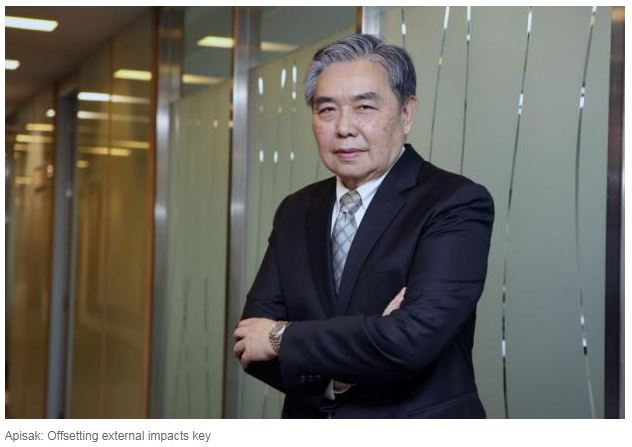Thailand: Finance minister airs 2019 concerns
Finance Minister Apisak Tantivorawong sees interest rate hikes, capital mobility and political stability after the general election as economic concerns for 2019.
Cheap money is no longer available, he said, referring to the central bank’s policy rate increase in December.
Farm sector reform is still far-fetched and state subsidies are still needed, he said.
Reforming the agricultural sector would help sharpen competitiveness, Mr Apisak said.
The sector must produce quality products at lower cost, he said.
Since the Prayut Chan-o-cha administration took the helm four years ago, farmers and low-income earners have been a focus of government strategies.
Paying state debts owed to farmers under the Yingluck Shinawatra administration’s rice-pledging scheme was the first thing Gen Prayut did when the military took over in 2014.
The cabinet recently approved financial assistance measures such as debt repayment rescheduling and lending rate cuts for farmers to help shore up the agricultural sector.
Amid the global uncertainty triggered by the trade dispute between the US and China, maintaining economic growth momentum at 4% in 2019 is necessary, Mr Apisak said.
“We need to have a strong domestic economy to offset external impacts,” he said.
Mr Apisak said recently that in 2019 the economy would slow down, with the US-China trade rift a drag, but 4% growth was still possible.
The World Bank, the IMF and the Organisation for Economic Cooperation and Development have forecast the global economy to grow at a slower pace in 2019 after having peaked in 2018.
Private investment must take the lead in keeping up economic momentum after the government-initiated Eastern Economic Corridor prompts domestic investment, Mr Apisak said.
For measures to alleviate poverty, he said the government has directed assistance to those who are really in need and provided job training to help them escape the poverty line of 30,000 baht in annual income.
Job training under the government’s welfare and subsidy scheme managed to help 60% of the welfare smartcard holders who are in the non-farm sector and 50-60% of those who are in the farming sector to stay above the poverty line, Mr Apisak said.
Job training is a part of the second phase of the government’s welfare and subsidy scheme aimed at addressing the root causes of poverty, requiring recipients to sign up for skill training programmes to obtain an additional living allowance of 100-200 baht a month to buy goods at Thong Fah Pracha Rat shops, on top of the 200-300 given under the first phase.
Some 4 million out of 11.4 million recipients (excluding an additional 3.1 million registrants) of the government’s assistance scheme for poverty signed up for training in return for a higher living allowance.
Source: https://www.bangkokpost.com/business/news/1604610/finance-minister-airs-2019-concerns


 Thailand
Thailand




